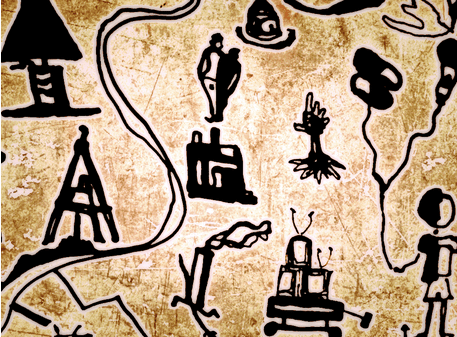A recent discussion with a nurse practitioner prompted me to think about the nature of labels. She argued that regardless of the label, the underlying condition of behavior consistent with that description remains unaffected by the label assigned. Naturally, I disagreed.
Labels are descriptors: values to which we assign descriptions of physical and social phenomena. Within the realm of the strictly physical world, there is little impact derived from the label assigned to animal species, for example. Merely because we call something a “frog”, its title has no effect on the condition of its existence. Such a label could be objective, in some sense. What if we call it “Rana temporaria” instead. Far from affecting the frog, it affects the listener. We immediately assume that the speaker is a biologist or perhaps a pedantic herpetology buff.
Labels carry an even greater stigma because they include an imbedded social element. For example, unless we are well-versed in the Latin names of animal species we may not even know what the speaker is referring to. Even scientific objectivity is subject to the requisite means of communication required to engage in discourse surrounding simple observations.
Neurodiversity, itself, is a broad label encompassing all other sub-labels given to conditions which describe deviations from social norms or even specific neurological functioning which results in those deviations. The nurse practitioner misunderstood the basic problem of labels, the value that comes attached to them. For humans, adherence to social norms is social currency. While this currency fluctuates like other currencies, the stigma attached to “mental illness” has never changed drastically enough to remove the stigma associated with these conditions. She argued that the label means nothing, that it merely describes whatever difference the label encompasses. Whether that is schizophrenia or bipolar disorder, the label means nothing apart from the condition it describes.
Of course, we know that this is not true. There is much more to a label than merely observations. Apart from neurological differences (presuming these can be identified), these descriptions pertain to behavioral characteristics, but descriptions of these characteristics are inherently linked to our understanding of behavioral norms. Descriptions of these conditions are not only linked in a normative sense, but limited in a descriptive sense.
The extent to which these conditions describe precisely the atypical neurology of these conditions is probably akin to the way physics describes the human experience. It can understand the fundamental mechanics, but it cannot grasp at the experience something like consciousness provides. There is no implicit conception relating to the value of existence in such a state of mind, except that which is perhaps negatively perceived by measuring departures from social norms. Such a description does not grasp the existential context of neurodiversity. Does a label like Neurodiversity? Maybe not.
The difficulty in all labels is their finite nature and yet the malleability of their contextual purpose is fluid. As with all things that rotate within the social sphere of humanity, such terms are eventually re-purposed and come to mean completely new things. Labels, in the end, are merely integers with a positive or negative value which changes over time. Moving beyond labels, then, is much more difficult, because it involves upheaval of the systems used in assigning values. Revolutionary ways of assigning labels must be invented; we might even have to use our brains to dismantle the status quo.

